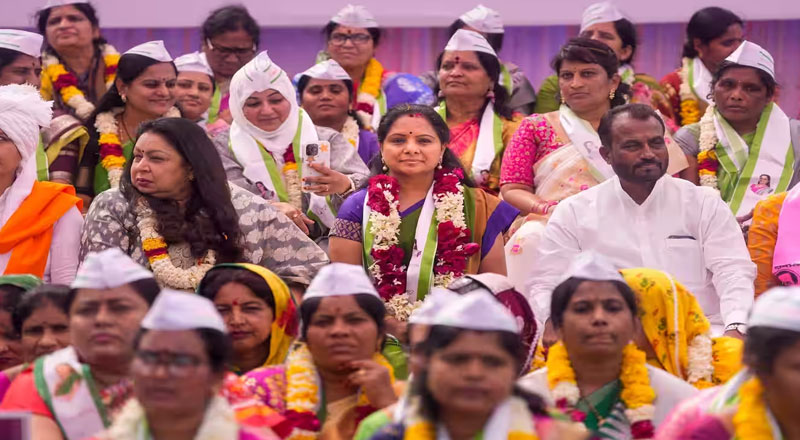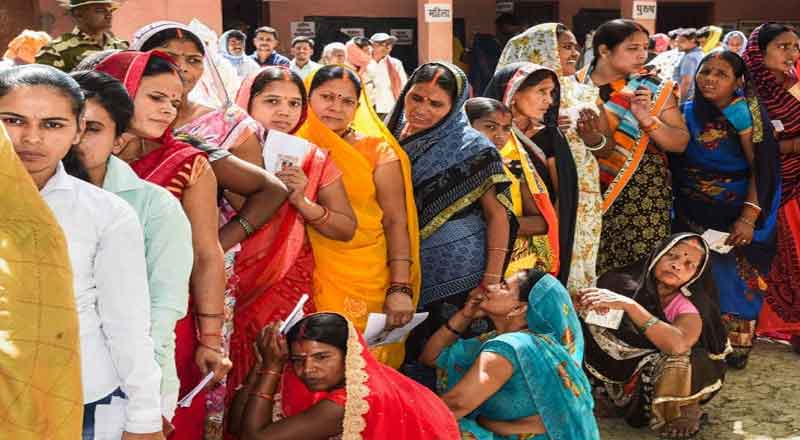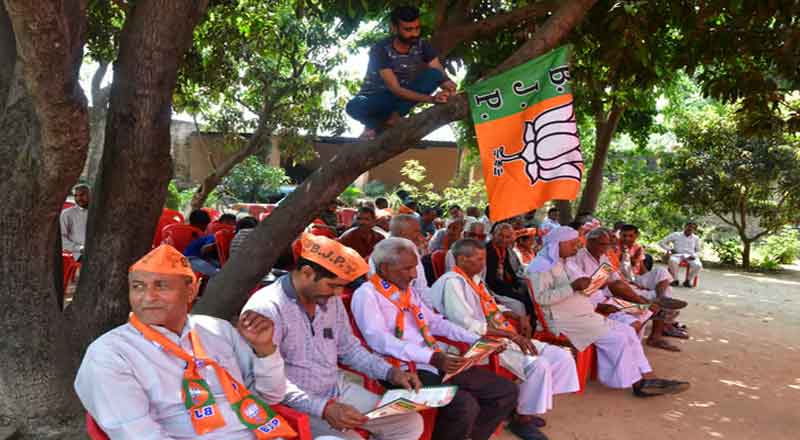K Kavitha, senior leader of the Bharat Rashtra Samithi (BRS), is holding a hunger strike in New Delhi today to demand the introduction of the Women’s Reservation Bill in Parliament. Leaders of several parties are participating in Ms Kavitha’s day-long protest at Jantar Mantar in the national capital.
Speaking on the Women’s Reservation Bill, Ms Kavitha, who is also the daughter of Telangana Chief Minister K Chandrashekar Rao, said the BJP had promised to implement the legislation in the run-up to the 2014 and 2019 general elections, but did not keep the word despite coming to power with a clear majority.
“Women’s Reservation bill is important and we need to bring it soon. I promise all women this protest will not stop until the bill is introduced,” she said. The legislation proposes a Constitutional amendment to reserve 1/3 of the seats in Lok Sabha and Assemblies.
The inspiration for this bill came from a constitutional amendment passed in 1993. According to the constitutional amendment, one-third of the village council leader, or Sarpanch, posts in the gram panchayat shall be allocated for women. The Women’s Reservation Bill was introduced as a long-term strategy to expand this reservation to the Lok Sabha and state legislatures.
The bill proposes to reserve 33% of seats in Lok Sabha and all state legislative assemblies for women. Reserved state or union territory seats may be assigned to various districts through rotation. Seat reservations for women will be phased away 15 years after this Amendment Act is passed.
Global Gender Gap Report 2021 reports that India has dropped 13.5 percent on the political empowerment index, and the number of women ministers has dropped from 23.1% in 2019 to 9.1% in 2021. Even the government’s Economic Surveys admit that women’s representation in Lok Sabha and legislative assembly is low. Women Panchayati Raj members have contributed significantly to the development and overall well-being of society in villages. Many would undoubtedly wish to work on a bigger scale; yet, they confront many problems in India’s political framework. This leads to the need for the Women Reservation Bill.





